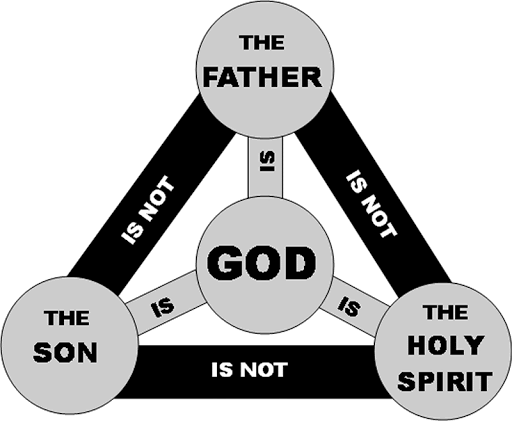Membership Class 1
Kittredge Community Bible Church Sunday School Class on Faith & Doctrine (1-6)
[The following is part 1 of a membership class that we are currently going through in Sunday School but you don’t have to be a prospective member to benefit. My hope is that even those that have been Christians for years will find the information informative and Christ-centered.]
Membership 1
Membership 2
Membership 3
Why a membership class?
1. To guard the unity of the church and make it clear what a Christian is.
2. To help people understand the church. What's our doctrine? How do we make decisions? What's our vision? What do we value?
3. To make it clear what is expected of a member. This can help prevent misunderstandings in the future.
So…
Who can become a member of KCBC?
The Bylaws of KCBC in Article IV Section 2 say…
Any person who has accepted the Lord Jesus Christ as their Lord and Savior (Romans 10:9-10), repented of their sins (Mark 1:15), been baptized (Acts 2:38), is in fundamental agreement with the doctrinal statement and object of KCBC (1 John 4:1-3), and who gives assurance of a desire to live a consistent Christian life (Luke 3:8), shall be eligible for membership.
For example, 1 John 4:1-3 tells us that it's not good enough for Christians to just agree to disagree about some issues.
Dear friends, do not believe every spirit, but test the spirits to see if they are from God, because many false prophets have gone out into the world. 2 This is how you know the Spirit of God: Every spirit that confesses that Jesus Christ has come in the flesh is from God, 3 but every spirit that does not confess Jesus is not from God. This is the spirit of the antichrist, which you have heard is coming; even now it is already in the world.
Confessing that Jesus Christ has come in the flesh is essential for Christians to believe, as our many other doctrines.
But before we explore what else is essential we need to define what is meant by "Fundamental agreement."
"Fundamental Agreement" is an agreement on a fundamental level. In other words, you don't need to understand everything in exact detail to become a member. But a member should not reject any of our beliefs on a fundamental level, either.
So let's look at the first statement.
The Bible
1. We believe in the Bible, as contained in both the Old and New Testaments, to be the inspired Word of God and without error in the original language. We believe that the Bible is the final court of appeals in all matters of Christian doctrine and Christian practice.
What is the fundamental meaning?
Everything we know about God's plan for salvation comes from the Bible. There is no higher authority. Dreams, visions, feelings, circumstances, or even someone who says God spoke directly to them are all subservient to the word of God.
Also, a member should not reject our reliance upon the scriptures in the original languages as the final court of appeals. In becoming a member we submit ourselves to scripture.
If we can't agree on this then we have no basis for having any unity at all. In fact, opposing views of Scripture is the main reason for division in the church.
What are the implications about translations?
Since we do not believe any translation is more authoritative than the original Hebrew and Greek, we encourage the use of many accurate modern translations and accept them all as the authoritative word of God.
We do not see the modern translations as "corrupt." We accept the generally recognized view that the older manuscripts are usually more reliable.
Does everyone need to speak Hebrew and Greek?
We do not believe everyone needs to speak Hebrew and Greek to understand the Bible. We believe a good approach is to utilize many English translations to get a better sense of what a passage means. We do not believe it is wise to promote any one English translation as an ultimate standard.
For further study: 2 Tim 3:16; 1 Cor. 2:13; Hebrews 1:1-2; 2 Peter 1:20-21
Now, let's look at the second statement.
God
2. We believe in one God existing in three persons: God the Father, God the Son, and God the Holy Spirit. We believe the persons of the Godhead to be co-equal and eternal.
What is the fundamental meaning?
The Trinity is a biblical summary of who God is. While members may not understand everything about the Trinity, they should not reject it.
The Doctrine of the Trinity teaches there is one God with three persons. All three are God. the Father is God, the Son is God, the Holy Spirit is God. But the Father is not the Son, the Son is not the Father, and the Holy Spirit is not the Father.
Here's a chart that may be helpful.
For further study: Matthew 3:16; Matthew 12:28; Matthew 28:19; Luke 3:22; John 14:26; John 15:26; Acts 1:4; Isaiah 9:6; John 1:14; Colossians 2:9; 1 John 5:7
Jesus Christ
3. We believe that Jesus Christ was conceived by the Holy Spirit and born of the Virgin Mary and is both true God and true man.
What is the fundamental meaning?
Being conceived by the Holy Spirit, Jesus is fully God. Being born of the Virgin Mary, Jesus is fully man.
What is meant by "true"?
When we say "true" we do not mean "honest" in the sense of truthfulness. We mean genuine, authentic, real. We mean "fully." 100%.
Could Jesus sin?
Jesus, even though he is fully man, is without sin. Like Adam, before he sinned, Jesus is fully man.
God created Adam perfect. He was “very good” but had the capacity to sin. Adam had a mind, a mouth, hands and feet, etc. which could be used for God's glory. When he was tempted he sinned.
Jesus, the second Adam, also was fully man with a mind, a mouth, etc. but when he was fully tempted he did not sin. Could he have sinned? Yes and no. As God, no. But as a man, Jesus has all of the parts necessary to sin.
What does the Bible call those who reject the fundamental teaching about Jesus being fully God and fully man?
Those that reject this are called antichrist. See 2 John 1:7.
For further study: John 1:14; Col. 2:9; 1 Tim 2:5; John 1:1; John 8:58; Phil 2:7; Hebrews 4:15…
Let's look at statement 4.
Substitution
4. We believe that Jesus Christ died a substitutional, atoning death on the cross as recorded in the Holy Scriptures; that all who by an act of faith believe in Him are justified (declared righteous) in the reckoning of the eternal Godhead.
What is the fundamental meaning?
We believe in substitutionary atonement. Or penal (as in punishment) substitution. Atonement has to do with payment for sin and being saved from God's punishment.
Jesus on the Cross accomplished all that is needed for salvation. Those that trust in what Jesus did are declared legally righteous. Our eternal security, then, is based on what Jesus objectively did on our behalf.
What are the implications?
We are not saved by works. Jesus didn't die so we could earn it on our own. Also it’s implied that Christ didn't just die as a victor over death but as a victor over sin.
For further Study: Romans 3:9-18, 23; Romans 6:23; 2 Corinthians 5:21; 1 Peter 2:24; 1 Peter 3:18; Isaiah 53:5
Man
5. We believe that man was created in the image of God, that he sinned and thereby incurred not only physical death, but also that spiritual death which is separation from God; and that all human beings are born with a sinful nature, are totally depraved and need a savior from sin.
What is the fundamental meaning?
All people are born totally depraved, that is: We have inherited a sin nature from Adam and are completely incapable of saving ourselves through any good works. We are 100% at the mercy of God to save us. God doesn't do 99% and then we do the final 1%. God does it all. Without God none of us would believe in the first place nor would we keep believing.
Why did God place the tree in the Garden? Why did he allow Adam to sin?
God allowed the Fall and God has good reasons for everything he does, including what he allows. Therefore God has good reasons for allowing the fall, whether or not we can fully understand them.
With that said, the Bible teaches that everything is done for God’s glory (Ephesians 1 and Romans 9:22-24.) Since everything God does is for His glory, God allowed sin in order to magnify his glory through the process of saving and redeeming us.
For further study: Jeremiah 17:9; Psalm 51:5; 1 Cor. 2:14; Ephesians 2:1-3; Romans 3:23; Genesis 6:5
Grace Alone
6. We believe that eternal salvation, the complete forgiveness of sin, is motivated by the mercy and grace of God; made possible by Christ’s atoning death on the cross; is appropriated by individual faith and is not based on any work or merit of an individual.
What is the fundamental meaning?
It cannot be overstated that salvation is not accomplished by man's works at all. For those that believe, salvation is made possible by the atoning death of Christ on the cross alone. God does it and we are completely at His mercy for salvation.
For further study: Ephesians 2:8; Galatians 2:16; Rom. 3:28; Romans 5:1; Romans 4:5; Romans 4:3; Philippians 3:9




